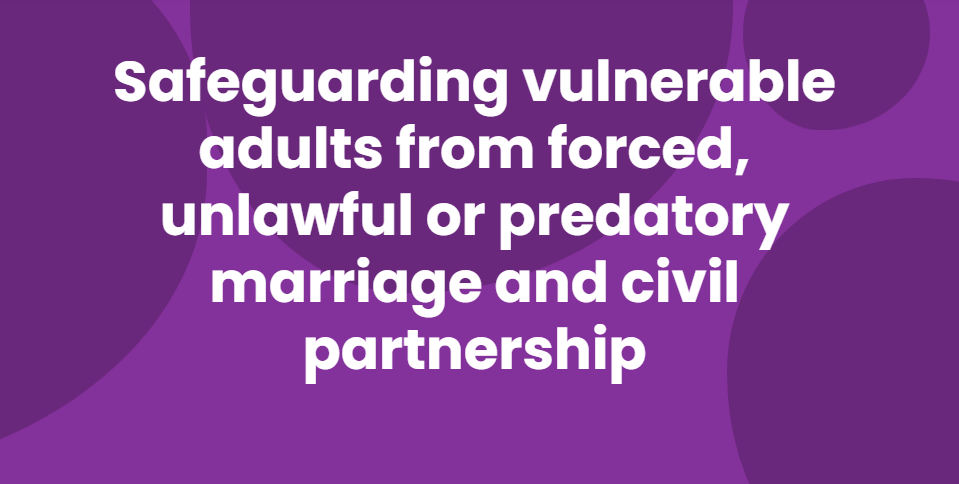
The My Marriage, My Choice project explores the forced marriage of adults with learning disabilities.
People with learning disabilities should be supported to get married if they choose to do so, and if they have capacity to consent to the marriage.
People forced to marry or to enter a civil partnership against their will, including when they don’t have capacity to consent, need to be protected from harm and abuse.
The new My Marriage, My Choice website contains information and resources for people at risk of, or currently experiencing forced, unlawful or predatory marriage.
The website also provides information and free training resources for professionals. So it’s a great starting point for anyone who may be able to help prevent forced, unlawful or predatory marriages. This includes health and social care professionals, people working in education and youth services, the police and other criminal justice professionals, and marriage registrars.
Finally, the website offers information which may be useful for policy makers and researchers both in the UK and internationally.
You can access the My Marriage, My Choice website here.
More Forced Marriage Resources
- We have a short guide to forced marriage, which includes a film exploring this issue in greater depth. Find it here.
- We’ve taken part in numerous forced marriage research projects over the years. You can learn more about our projects and our findings here.
- Predatory marriage is a form of forced marriage in which abusers target adults at risk for financial gain. We recorded a podcast with Daphne Franks, in which she talks about her Justice for Joan campaign. Listen here.
- An exchange in the Guardian from October 2020 offers an insightful case study into how forced marriage might happen. It also has lots of advice for anyone who’s worried about a forced marriage situation. Find it here.
